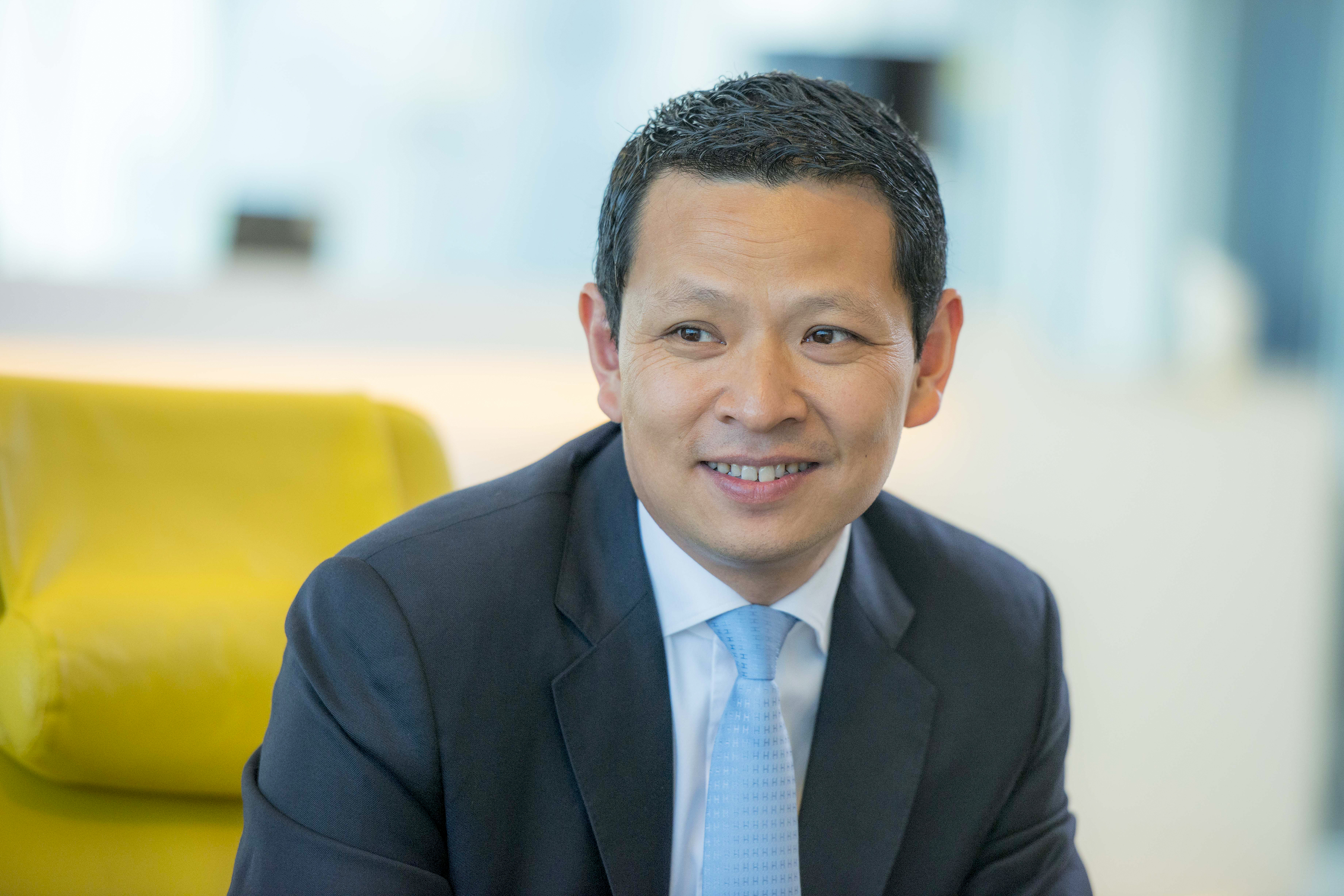EY refers to the global organization, and may refer to one or more, of the member firms of Ernst & Young Global Limited, each of which is a separate legal entity. Ernst & Young Global Limited, a UK company limited by guarantee, does not provide services to clients.
EY and Saïd Business School study reveals that leaders prioritizing a human-centered approach to transformation turning points are up to 12x more successful
- 96% of transformation programs experience challenges that generate a turning point, when the program has or will go off track.
- Skillfully navigating these turning points by placing humans at the center can double the likelihood that a transformation overperforms its KPIs (1.9x) and speed (2.1x) of the overall program.
- The human element plays a crucial role in successfully maneuvering these turning points and increases the chance of a transformation significantly, improving performance by up to 12 times.
The EY organization’s latest research with Saïd Business School, at the University of Oxford, reveals new insights into what happens when a transformation program’s leadership believes a transformation has or will go off-course and intervenes with the intent of improving its performance (turning points).
According to the joint research based on analysis of 846 senior leaders, and 840 workforce members, across 23 countries and 16 industry sectors, and five qualitative case studies, turning points are ubiquitous in nearly all transformation programs. 96% of respondents experienced at least one turning point over the course of a project, with 76% citing them as unavoidable in today’s unpredictable business environment.
Data from the three-year collaboration with the EY organization and Oxford Saïd has highlighted that transformations are not linear, and that along with global volatility and the increased speed of disruption, new thinking is demanded around how leaders must navigate these turning points while also addressing the changing environment inside and outside of an organization. The data reveals that at the center of this new thinking are humans.
The research finds that when leaders fail to take a human-centric approach to navigating turning points, the transformation program is 1.6x more likely to underperform and 3.5x more likely to leave workers experiencing negative emotions, such as anxiety, fear, and apprehension towards future change.
Yet, those who take an adaptive, people-centered view to a turning point are more likely to successfully steer the program back on course and can also potentially double (2.1x) the speed of the overall transformation program, improve the wider program performance against key performance indicators (KPIs) by nearly two-fold (1.9x) and support workforce readiness for the next transformation program (1.9x).
The study revealed a three-step human-centered approach — Sensing, Sense-making, and Acting — that enhances the overall transformation chances of success by a factor of 12:
- Sensing: Focusing on early detection by looking beyond traditional lagging KPIs to behavioral and emotional changes of the people involved in the transformation.
- Sense-making: Identifying and addressing root causes of issues in collaboration with team members across the transformation program.
- Acting: Reinforcing the six key drivers that set the conditions for successful transformations established in our initial whitepaper, these include engaged leadership, collaboration, fostering a culture of inspiration, empowerment, care, and finally recognition of the emotional impact of technology.
Errol Gardner, EY Global Vice Chair, Consulting says:
“Constant agility and transformation is at the heart of business performance and value creation for our clients in today’s environment. Our joint research with Oxford Saïd has opened a new perspective on the role and nature of emotional energy during pivotal moments in transformation programs, and, rather than be viewed as noise or a barrier, they can instead serve as an opportunity to increase transformation success. This is what brings our concept of Humans@center to life.”
Andrew White, Senior Fellow in Management Practice, Said Business School, University of Oxford, says:
“This research is incredibly significant and is the result of years of dedicated, collaborative work between EY and Saïd Business School. In a world preoccupied with artificial intelligence and machine-learning, our study shows that human behavior is the most prescient influence in driving transformation. Applying the three-step approach of Sensing, Sense-making, and Acting enhances the chances of success by a factor of 12, making this human-centric approach crucial to leaders in the development, steering process, and delivery of transformation programs.”
The study has identified a new standard in helping leaders and their teams deliver transformation programs smoothly that moves beyond traditional KPI measurements and places a spotlight on the importance of comprehending the impact and role of human emotions as benchmarks in a transformation, demonstrating the power of placing humans at the center.
To read the full report, please visit: ey.com/humans
-ends-
About EY
EY exists to build a better working world, helping create long-term value for clients, people and society and build trust in the capital markets.
Enabled by data and technology, diverse EY teams in over 150 countries provide trust through assurance and help clients grow, transform and operate.
Working across assurance, consulting, law, strategy, tax and transactions, EY teams ask better questions to find new answers for the complex issues facing our world today.
EY refers to the global organization, and may refer to one or more, of the member firms of Ernst & Young Global Limited, each of which is a separate legal entity. Ernst & Young Global Limited, a UK company limited by guarantee, does not provide services to clients. Information about how EY collects and uses personal data and a description of the rights individuals have under data protection legislation are available via ey.com/privacy. EY member firms do not practice law where prohibited by local laws. For more information about our organization, please visit ey.com.
This news release has been issued by EYGM Limited, a member of the global EY organization that also does not provide any services to clients.
About the research
In this phase of the research, the EY organization and Saïd Business School, at the University of Oxford, surveyed 846 senior leaders and 840 workforce members in June and July 2023. Respondents represented companies with over US$1b in annual revenue across 16 industry sectors and 23 countries in the Americas, Asia-Pacific and Europe, the Middle East, India and Africa (EMEIA).
Respondents were required to have been involved in a major transformation at their current organization in the past five years. The survey focused on a single turning point – defined as “when leadership believes a transformation has gone, or will go, off-course and intervenes with the intent of improving its performance or outcomes.”
In addition, case studies of five global companies were conducted, including interviews and focus groups with leadership, middle management and the workforce.
Related news
Major shift in global IPO market share from the past five years
London, 28 March 2024. The year kicked off on a cautiously optimistic note, marked by a selective thaw following a quieter period. The Americas and EMEIA IPO markets had a bright start in 2024, increasing global proceeds. However, the Asia-Pacific region started on a weak note, weighing down the overall global volume.
HONG KONG, 27 MARCH 2024 — The EY organization today announces the details of 18 female entrepreneurs selected for the EY Entrepreneurial Winning Women™ Asia-Pacific class of 2024 — a bespoke executive program that identifies and champions a select group of high-potential entrepreneurs who have built profitable companies and provides them with connections and resources needed to unlock their potential and sustainably scale their companies.
EY announces acceleration of client AI Business Model adoption with NVIDIA AI
LONDON, 20 March 2024. The EY organization today announces Ernst & Young LLP (EY US) will help clients implement and accelerate their artificial intelligence (AI) journeys using NVIDIA’s industry-leading technology and solutions.
EY announced Jonathan Zhao as EY Asia-Pacific Financial Services Regional Managing Partner
Hong Kong, 11 March 2024. The EY organization today announced the appointment of Jonathan Zhao as Regional Managing Partner (RMP) of its Asia-Pacific Financial Services Organization (FSO), succeeding Gary Hwa, effective 1 July 2024.
The future of eMobility relies on collaborative data sharing and standardization
LONDON, 6 MARCH 2024. EY predicts that by 2030 there will be more than 75m electric vehicles (EVs) roaming across different charging networks in Europe.







